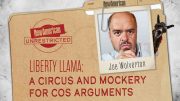
On November 4, voters in Arizona will have the following proposal put to them on their general election ballot:
PROPOSITION 122
PROPOSING AN AMENDMENT TO THE CONSTITUTION OF ARIZONA; AMENDING ARTICLE II, SECTION 3, CONSTITUTION OF ARIZONA; RELATING TO THE REJECTION OF UNCONSTITUTIONAL FEDERAL ACTIONS.
DESCRIPTIVE TITLE
PERMITS THE STATE TO EXERCISE ITS SOVEREIGN AUTHORITY BY RESTRICTING STATE AND LOCAL GOVERNMENT PERSONNEL AND FINANCIAL RESOURCES TO PURPOSES THAT ARE CONSISTENT WITH THE CONSTITUTION OF THE UNITED STATES.
A "yes" vote shall have the effect of allowing the state to restrict the state and all local governments from using any personnel or financial resources to enforce, administer or cooperate with a federal action or program that is not consistent with the Constitution of the United States. The state's authority is exercised if the state passes an initiative, referendum, bill, or pursues any other available legal remedy. YES
A "no" vote shall have the effect of retaining the current law relating to state and local governments and the Constitution of the United States. NO
This proposed amendment to the state constitution, known familiarly as Prop 122, is at once the most important and most irrelevant question to be decided by citizens of the Grand Canyon State. The explanation of this seeming incongruity is provided below.
Important
First, as the reach of the federal government’s assumed authority lengthens and the scope of state sovereignty correspondingly contracts, the obligation of state legislators to enforce the limits of constitutional federalism grows more urgent.
Resisting federal trampling of the Constitution is not only a right of state lawmakers, it is in fact a constitutional obligation.
Article VI, Clause 3 of the U.S. Constitution reads:
The Senators and Representatives before mentioned, and the members of the several state legislatures, and all executive and judicial officers, both of the United States and of the several states, shall be bound by oath or affirmation, to support this Constitution; but no religious test shall ever be required as a qualification to any office or public trust under the United States.
Simply put, this clause puts all state legislators under a legally binding obligation (assuming they’ve taken their oath of office) to “support the Constitution.” There is no better way, it would seem, for these elected state representatives of the people to show support for the Constitution than by demanding that the officers of the federal government adhere to constitutional limits on their power.
Perhaps a greater number of these state legislators, attorneys general, and judges would be more inclined to perform their Article VI duty if the people who put them in office would sue them and hold them legally accountable for any failures to carry this burden.
Imagine, furthermore, the uproar in state assemblies across the country if, every day the legislators were in session, process servers showed up at their offices armed with lawsuits charging them with dereliction of their constitutional duty!
Fortunately for Arizonans, several state lawmakers and political leaders appreciate the dire circumstances in which their state and all others find themselves. Accordingly, they have published statements in favor of Prop 122. The following is a sample of a few of these statements:
Representative David Schweikert (R-Ariz.):
The arrogance of Washington believing it knows what is best for our community is nonsense. Just because Washington passes a law does not mean Arizona taxpayers should have to pay for it. I support Prop. 122 because it lets Arizonans set our own priorities.
Representative Paul A. Gosar (R-Ariz.):
The executive branch of the federal government continues to act lawlessly. Instead of upholding the United States Constitution and the rule of law, the President and his administration govern by way of political whim rather than within the confines of statutory authority. The executive branch picks and chooses which laws it will enforce and which it will ignore. The executive branch has instituted thousands of rules and regulations which have the force of law, but which have no authorizing statute to buttress the validity of such enforcement. Finally, the executive branch has blatantly and repeatedly broken laws and violated the Constitution. Some would equate such actions to tyranny — others, to treason. The Founding Fathers of the United States envisioned a pure federalist system of governing. A central government was important, but the United States Constitution left most power in the hands of the governed, and to the several States. It is long past time the executive branch uphold its duty to enforce the laws prescribed by the Congress of the United States, and cease any unnecessary or unlawful interference with State and local business.
And, finally, this statement in support of Prop 122 from Sheriff Joe Arpaio:
As Sheriff of Maricopa County, I see firsthand how bad policies from Washington, DC make life more difficult for everyday Arizonans. Federal laws that mandate amnesty for illegal immigrants, and interfere with law abiding citizens' Second Amendment right to own and bear arms simply defy common sense.
What's worse, the federal government requires Arizonans to pay for many of these bad ideas not out of our federal taxes, but from our own state and local budgets. So money that could be better spent on schools, roads and public safety is instead spent on welfare and gun control.
Irrelevant
While these lawmakers’ and law enforcers’ statements pounding the pulpit of state sovereignty are laudable, they are, constitutionally speaking, unnecessary.
Nullification, whether through active acts passed by the legislatures or the simple refusal to obey unconstitutional directives, is the “rightful remedy” for the ill of federal usurpation of authority. Americans committed to the Constitution must walk the fences separating the federal and state governments and they must keep the former from crossing into the territory of the latter.
The Virginia and Kentucky Resolutions plainly set forth James Madison’s and Thomas Jefferson’s understanding of the source of all federal power. Those landmark documents clearly demonstrate what these two agile-minded champions of liberty considered the constitutional delegation of power. Jefferson summed it up very economically in the Kentucky Resolutions:
That the several states who formed that instrument, being sovereign and independent, have the unquestionable right to judge of its infraction; and that a nullification, by those sovereignties, of all unauthorized acts done under colour [sic] of that instrument, is the rightful remedy.
Madison and Jefferson recognized that honest men could and would disagree about the proper interpretation of this or that constitutional provision. Not all of these men would be trying purposefully to enlarge the size and scope of the central government; some would merely be applying their own set of principles to resolving issues of constitutional construction. In these cases, Madison and Jefferson recommended the Principles of ’98 as an accurate lens through which adversaries should view the Constitution.
No serious debate should be entertained as to whether the national authority has repeatedly attempted to break down the boundaries placed by the Constitution around its power. From the beginning, our elected representatives have overstepped the limits drawn around their rightful authority and have passed laws retracting, reversing, and redefining the scope of American liberty and state sovereignty. Our sacred duty is to tirelessly resist such advances and exercise all our natural rights to restrain government and keep it within the limits set by the Constitution.
Arizona’s Proposition 122 is at least a step in the right direction.
Joe A. Wolverton, II, J.D. is a correspondent for The New American. Follow him on Twitter @TNAJoeWolverton.




